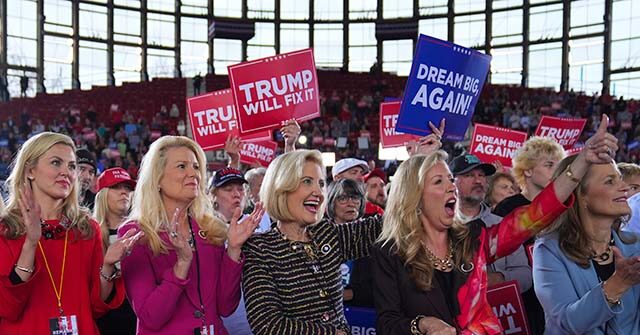Tiffney Prickett, the owner of Voiage Salon in Coeur d’Alene, Idaho, recently found herself engulfed in controversy after her outspoken criticism of President-elect Donald Trump on social media. In a TikTok video posted shortly after the November election, Prickett described her views on Trump supporters as “racist, homophobic, and misogynistic,” stating that she was experiencing significant backlash from her clientele as a consequence. She recounted a particularly distressing incident where a longtime client, who had patronized her salon for 15 years, asked for a refund for pre-purchased gift cards because she could no longer support Prickett’s salon due to her views on Trump. Prickett emphasized that while she appreciated the client’s loyalty, her principles regarding human rights far outweighed her financial interests.
As the fallout from her comments intensified, Prickett reflected on the situation in a follow-up video, noting that her client losses were accumulating rapidly. She indicated that authenticity and integrity were paramount to her, even if that meant losing business. Despite acknowledging the personal and financial costs of her stance, she passionately defended her right to express her beliefs, reaffirming her commitment to standing against racism and discrimination. Prickett expressed disapproval of those who support what she perceives as the stripping away of human rights and stated her intention to create a welcoming environment for individuals who share her values.
Prickett’s situation highlights the deep political divides in the United States, particularly in the aftermath of the 2020 election. The salon owner’s experience is a reflection of a broader phenomenon where individuals are increasingly vocal about their political beliefs, often leading to significant social and economic implications. The salon, which was a once-shared space for diverse backgrounds, became a battleground for ideological differences, showcasing how political affiliations can sour personal relationships and affect professional landscapes.
Moreover, Prickett’s choice to prioritize her ideals over her business raises questions about the ramifications of political expression in the marketplace. For some, supporting a business owner with opposing views could be tantamount to endorsing the ideologies that they stand against. As a result, Prickett’s decision to create an environment where Trump supporters feel unwelcome may alienate a significant segment of her potential clientele. Nonetheless, she seemingly finds solace in her conviction, expressing that she would prefer to work in a restaurant rather than subject herself to a client base that conflicts with her moral compass.
Prickett’s situation serves as a cautionary tale about the entangled relationship between politics and business. In an era dominated by social media, where personal platforms are leveraged for political discourse, the line between personal beliefs and professional obligations has blurred. While some business owners may choose to keep their political views private to maintain a broader clientele, Prickett’s actions suggest a growing trend where individuals are willing to risk their livelihoods to advocate for their beliefs.
In conclusion, Tiffney Prickett’s story underscores the risk and complexity of navigating political discourse in business today. As the consequences of her outspoken condemnation of Trump supporters manifest in her salon’s diminishing clientele, the incident mirrors a larger societal narrative about the intersection of politics, personal identity, and commerce. Whether her steadfast principles will ultimately serve as a positive force for her brand or lead to further losses remains to be seen, but it certainly opens a dialogue about the implications of choice in an increasingly polarized landscape.

